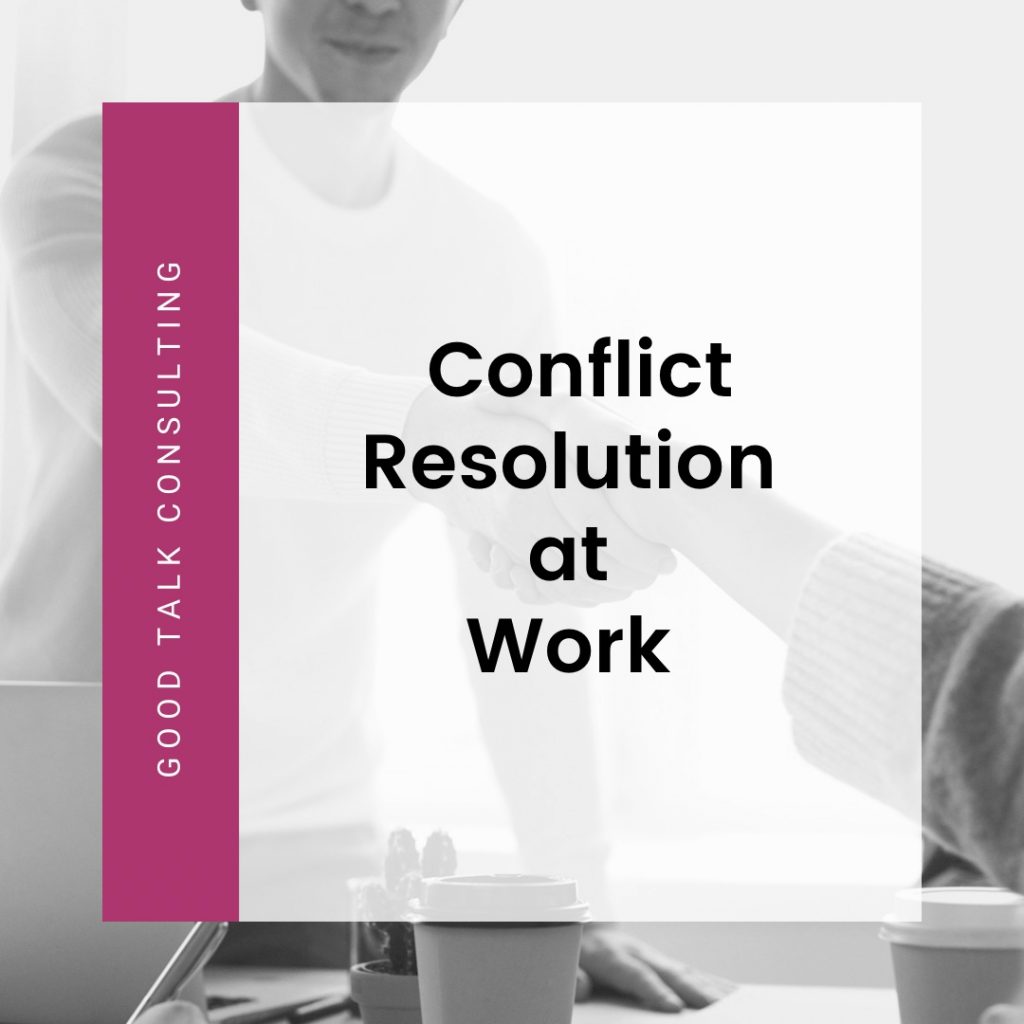‘Conflict’ seems like a nasty word to a lot of people, but it doesn’t have to be. Today we’ll repair the reputation of ‘conflict’ and talk about why it’s necessary in the workplace. Let’s start by defining some key terms. Conflict is a clash between two or more parties that happen when they have differing goals, lack of resources, or are obstructed when trying to achieve their goals. Basically, conflict happens when you want it your way and can’t have it because you believe someone else is stopping you. What can you do about it? Resolve it. Resolution refers to strategies that repair or solve the conflict.
Conflict isn’t fun, but it is a necessary and everyday part of work life. In fact, it’s downright healthy to have conflict at work? Why? Because without an expression of varying ideas and independent thinkers trying to find the best solutions, you would have a bunch of boring drones. Free thought and passionate advocacy for your ideas are hallmarks of leaders.
Why resolve conflict?
Conflicts at work create challenges for career development. We spend so many hours in the workplace that conflict can also have an impact on our wellbeing or health, especially mental health. As a supervisor you must see conflicts coming learn productive responses, get more cooperation from employees you supervise, help them resolve conflicts, keep these from spreading to other parts of the organization, teach teams to handle conflict- basically be BETTER than your employees and pull them up with you.
How can you resolve conflict?
The best ways to resolve conflict is tackle it head-on, but with tact. Considering your communication style and that of the other party involved in conflict, devise a strategy to talk it out. That might mean a face-to-face conversation or a phone call. It might take one go or multiple small chats. Every effort you put towards resolving conflict can positively influence your work-life balance and the office environment. Resolving conflict requires use of emotional intelligence and patience.
Emotional Intelligence
So what is emotional intelligence? It’s the ability to be self-aware and empathetic, managing your own emotions while reading others’ emotional states. An emotionally intelligent leader is in tune with their emotions and those of others. You can manage your own emotions by knowing who you are and what your options are. Remember that others’ emotional expression belongs to them and you do not have to absorb it.
Want a great resource on emotional intelligence from today’s business leaders? Check out HBR Guide to Emotional Intelligence. Affiliate Link.
Anger and passion may be present in highly-charged conflict situations. Stubbornness and pride may prevent conflict resolution. An emotionally intelligent leader, like yourself, can see these emotions as useful and productive, then turn the conversation toward a solution that works well for all parties involved.
Patience and Determination
Resolving conflict is not often achieved in a short, easy burst. It may take some time, so have patience with the process. Remember that others need time to process your requests and their own emotions. If you have determination to make the workplace better through conflict resolution, it will pay off in the end.
Remember, conflict is unavoidable and a totally normal part of your everyday work life. Instead of ignoring it, you can handle it. Need to talk it over? Reach out for a coaching session with Good Talk today.





Leave a Reply